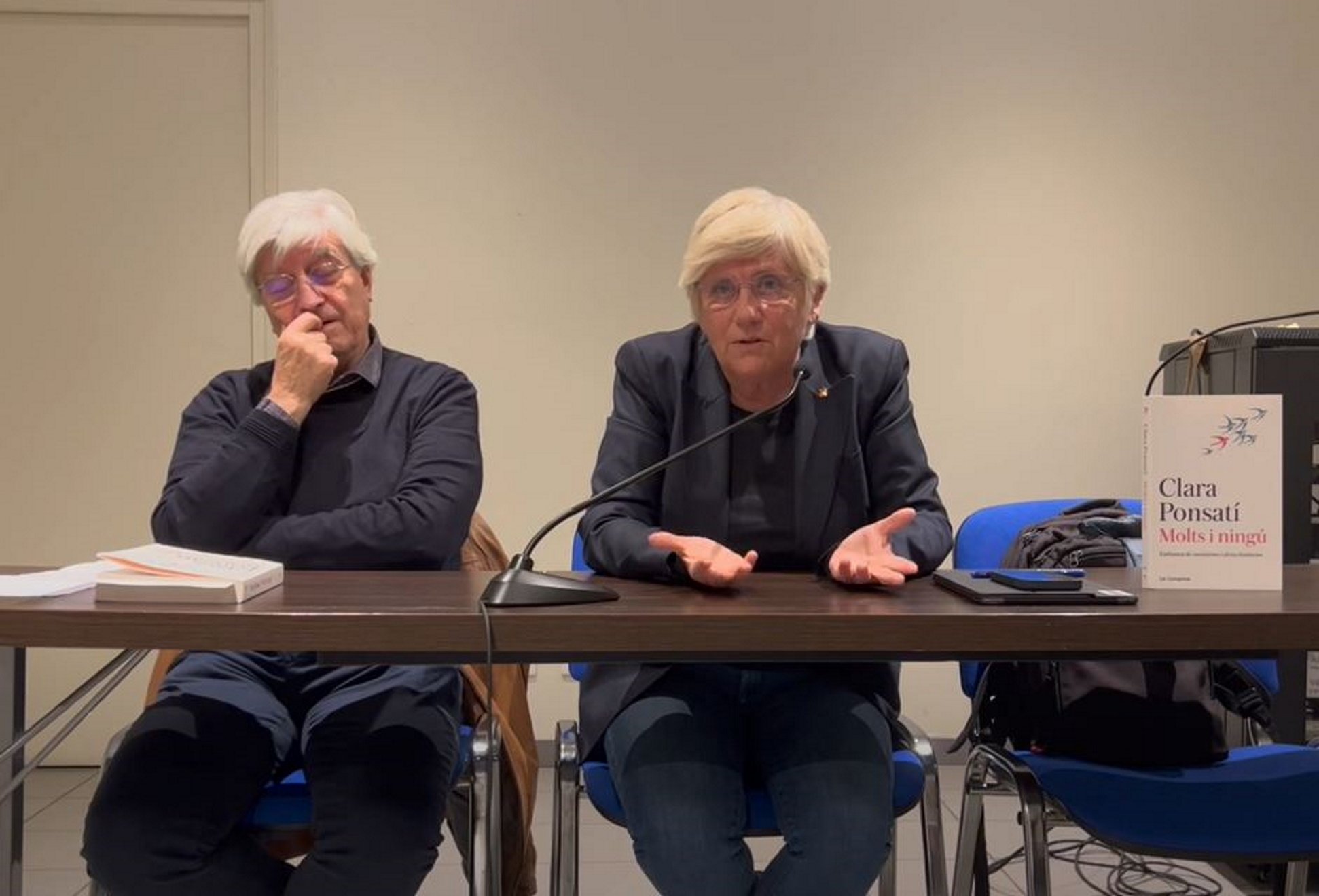The exiled Catalan government minister and MEP Clara Ponsatí has stated in a conference in Paris, at the debate space Le Maltais Rouge, that the Spanish government and judiciary will not be able to "beat Puigdemont", and nor will they be able to obtain the extradition of the former Catalan president. "In Spain, pursuing president Puigdemont is a moral priority, which almost defines being Spanish. President Puigdemont is such a powerful symbol that he has truly become the most vivid expression that the Catalonia people are not yet defeated. And therefore they need him, they need to beat him. But they won't achieve that. President Puigdemont has great virtues and some flaws, but they won't beat him, and they won't achieve extradition either. They can take that as a given," she said with conviction.
Ponsatí told the audience that she cannot be arrested in France because she has immunity as an MEP, and that the French authorities have always respected that. "Despite the fact that the European Parliament voted to lift our immunity, we appealed to the EU General Court and they granted us an interim injunction." She gave the example of her recent attendance at a protest at a minor French-Spanish border crossing, when she stepped into Spanish territory for a few minutes, with French police having been present: "The gendarmes who were there at the Coll de Banyuls were there to protect me. I have travelled through several countries in Europe and on a few occasions I have had to go through border controls. And when I go through them my passport raises an alarm, but the police have a note that says that even if the "alarm sounds they can't arrest me", she explained. According to the MEP, she has seen this in all sorts of European countries where the rule of law is respected, but she does not know what would happen if she went to Spain. "In Spain it should also be respected, but we haven't tested that," she said.
Criticism of the PSOE-ERC pact
The exiled minister was critical of the reform of the Spanish Penal Code agreed by the Spanish Socialists (PSOE), Unidas Podemos and the Catalan Republican Left (ERC), and warned that it will have consequences for those facing persecution by the Spanish state. "We have seen how the ministers of the Sánchez government are selling it - they say they've done it to send president Puigdemont to prison, which is "lo que queremos todos" - "what we all want". "It was difficult for us to explain that the whole thing was political persecution, but now it becomes easier," she said. The exiled minister acknowledged that, with an interpretation that was the complete opposite to the Spanish government's, Catalan president Pere Aragonès came out and explained that the Penal Code reform, removing the crime of sedition and amending public disorder crimes and misuse of funds, was a great step forward in ending the repression in Catalonia. "I know that everyone has their clientele, but these are two arguments that are simply incompatible. The level of contradiction is so cosmic that it cries out to heaven. Both of these things cannot be true: either they did it to catch Puigdemont, or to end the repression. I find it very unsuspecting or very incomprehensible on the part of ERC, to sell this as a breakthrough".
Ponsatí believes that with the reform of the Penal Code, the European Arrest Warrants issued against those exiled for sedition may not be valid, but she points out that they can issue others that is adjusted to the newly drafted law.

